Space is limited! Sign up now and guarantee your place today. Read on to learn how.
 Track: WFH
Track: WFH
When: April 21 from 8:00 to 11:30
This popular safety workshop—developed by the Coagulation Products Safety, Supply and Access Committee (CPSSAC) of the WFH—will focus on the safety, efficacy and access of new and current therapies for people with bleeding disorders. The latest clinical trial data on pipeline therapies, real world data from recently approved therapies, and treatment options in low- and middle-income countries will be highlighted.
To read the workshop agenda, please click here.
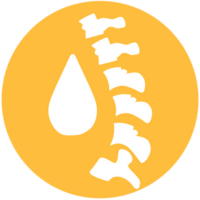 Track: MSK
Track: MSK
When: April 21 from 8:00 to 17:00
This workshop will provide healthcare professionals with both theoretical knowledge and practical skills in using ultrasound to assess joints for bleeding or inflammation in patients with bleeding disorders. More specifically, this workshop will help participants detect if there is a bleed or no bleed. The event will begin with theoretical presentation on the importance of ultrasound assessments in optimizing treatment for bleeding disorder patients and how this tool can help in detecting the presence of blood inside the joint. Following the presentation, participants will engage in hands-on, group-based practical sessions led by expert facilitators. The goal is to enhance participants’ ability to perform joint ultrasound assessments accurately.
To read the workshop agenda, please click here.
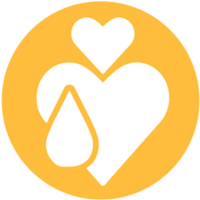 Track: Women and girls with bleeding disorders (WGBD)
Track: Women and girls with bleeding disorders (WGBD)
When: April 21 from 8:30 to 14:45
This interactive workshop aims to provide comprehensive insights into the management of heavy menstrual bleeding (HMB). Participants will learn about the challenges of HMB, how to assess bleeding from both a patient and healthcare professional perspective, and strategies for effective communication and advocacy. Clinical cases, discussions on the lack of evidence, and an expert panel will further enhance participants’ understanding, and will empower them to make informed decisions about HMB management.
To read the workshop agenda, please click here.
 Track: Psychosocial
Track: Psychosocial
When: April 21 from 8:30 to 16:00
The first half of this workshop will address the ethical considerations surrounding factor usage. In the second half, participants will discuss confidentiality issues, specifically examining situations where psychosocial workers should consider sharing information with other healthcare team members at a hemophilia treatment centre (HTC). After deliberation, each group will present its findings and insights to the larger assembly for further discussion.
To read the workshop agenda, please click here.
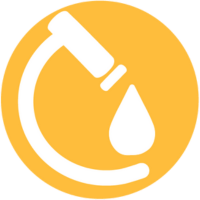 Track: Laboratory sciences
Track: Laboratory sciences
When: April 21 from 9:00 to 12:00
The topics covered in this workshop will include various aspects of laboratory quality control and performance enhancement, such as internal and external quality controls and tools for improving laboratory efficiency. Troubleshooting assay problems will be highlighted as an essential skill for maintaining accuracy in test results. Factor VIII and IX inhibitors will be discussed in the context of their impact on clotting processes and laboratory diagnosis. Discriminating between quantitative and qualitative deficiencies in fibrinogen as crucial for accurate diagnosis will be explored by participants. Point-of-care testing in hemostasis will also be looked at, including its current status and future perspectives. Additionally, the challenges and potential solutions for diagnosing bleeding disorders in lower-income countries will be addressed, with a focus on the potential usefulness of the bleeding time test (BAT) in resource-limited settings.
To read the workshop agenda, please click here.
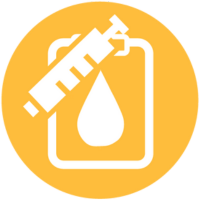 Track: Nurses
Track: Nurses
When: April 21 from 10:00 to 17:00
In reflection of the five interrelated domains of the role of the clinical nurse specialist—advanced practice, education, research, leadership and consultation—this year’s nurses workshop takes a holistic view of the role of the hemophilia nurse in supporting individuals and families affected by bleeding disorders. This workshop, in addition to the nursing track, will support the sharing of evidence and practices related to novel therapies, condition management, health promotion and the prevention of illness. It will also include how to have a discussion with “the person in front of us” and what matters to them in order to give them a more individualized approach to care.
To read the workshop agenda, please click here.
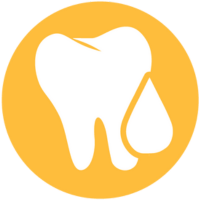 Track: Dental
Track: Dental
When: April 21 from 14:00 to 17:00
Most dental disease is preventable, and basic prevention education and interventions can be delivered by non-dentists. This workshop will be a hands-on practical session to teach basic oral health prevention to participants, including important skills such as delivering effective oral health education, and the application of preventive oral products such as fluoride varnish. All professional disciplines and caregivers are welcome to join!
To read the workshop agenda, please click here.
 Track: WFH
Track: WFH
When: April 21 from 15:00 to 17:30
The long-term surveillance and collection of data on bleeding disorders provides valuable insight into global disparities in treatment and care. The demographic and clinical data collected are powerful tools for developing data-driven patient care strategies and educational initiatives. Through collaboration with colleagues and researchers within the bleeding disorders community, the WFH will host a workshop aimed at highlighting the significance of these tools, showcasing the impact of data on advocacy and research, and illustrating the importance of building national registries.
To read the workshop agenda, please click here.
 Track: WFH
Track: WFH
When: April 21 from 17:20 to 18:15
Publishing in Haemophilia—the official journal of the WFH—presents both opportunities and challenges for researchers and practitioners in the field. While it offers a platform to disseminate new findings and contribute to the scientific community, there are hurdles to be overcome such as rigorous peer reviews and the need to meet specific publication standards. Through interactive discussions and practical examples, attendees will gain valuable insights and strategies to navigate these challenges and effectively disseminate their research findings to the global hemophilia community.
To read the workshop agenda, please click here.
 Track: Musculoskeletal (MSK)
Track: Musculoskeletal (MSK)
When: Monday, April 22 from 16:00 to 18:15
This two-hour workshop will provide participants with both theoretical knowledge and practical hands-on skills for safely and effectively applying manual therapy techniques to patients with bleeding disorders. The goal is to enhance the understanding and competence of healthcare professionals—mainly physiotherapists—in managing hemophilia-related joint issues.
To read the workshop agenda, please click here.
 Track: Musculoskeletal (MSK)
Track: Musculoskeletal (MSK)
When: Tuesday, April 23 from 16:00 to 18:15
This workshop aims to provide a platform for discussion and learning from healthcare professionals specializing in bleeding disorder care. The event will be structured as round tables, each consisting of eight to ten participants, and will feature experts from various specialties, including physiotherapy, orthopedics, and hematology. Participants will engage in case study discussions, and will explore frequently-used musculoskeletal techniques for bleeding disorder care and optimal follow-up plans.
To read the workshop agenda, please click here.
How to sign up for a workshop
Already registered for Congress?
Simply log in using your email and last name. You will then be brought to the “Workshop” page, where you will be able to add the workshop(s) of your choice to your file. Once done, click “Continue”.
Not yet registered for Congress?
Reserve your spot in one of the workshops when you register.
Join these sessions and more! Click here to register today.
Learn more about what the WFH 2024 World Congress has to offer by consulting the detailed program here. To find out more about Congress, please click here.













